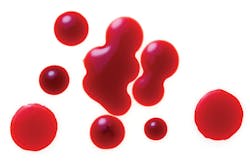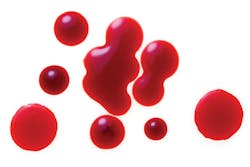Easy does it? Whether dental hygiene treatment is with a lighter or aggressive touch, patients notice
By Eileen Morrissey, RDH, MS
How do you respond when a patient asks you why she does not bleed when you clean her teeth, but she spits a mouthful when the "other" hygienist cleans her teeth? The patient has no inflammation whatsoever, and her oral hygiene is very good. You've seen this patient numerous times and her presentation is always excellent.
From the standpoint of diplomacy, it would seem appropriate to say that perhaps the tissues had more inflammation during her previous session. But there is a good chance that this patient will respond by saying that her home care was completely consistent, and that nothing was different in her mouth. Then where will you be with this question?
Honesty may the best policy. I remember being in this situation. My response was, "I wasn't there, so I don't know what your tissue conditions were like at the time. I can only speak to how they are today, which is excellent and free of inflammation, so there is no bleeding when I scale your teeth. But some clinicians scale more aggressively than others, with a heavier hand. Many patients enjoy that type of treatment. I lean toward a lighter touch, because that is how I like my mouth to be treated."
It's true, isn't it? You can scale two mouths with identical clinical presentations and one patient will say you're too gentle, while another will say you're too rough. Upon flossing some patients I've been asked, "Why don't you go under the gums when you floss my teeth?" (Mind you, these are folks who press the floss so deeply into the gingival tissues that they create clefts that are evident clinically.) This is an excellent opportunity to teach them about the concept of diminishing returns and the ensuing damage that can occur when they're overzealous.
In the past I worked in a periodontal practice where the doctor wanted every patient to be administered topical anesthesia, and a heavy hand to be the standard of care at maintenance visits. It made no difference whatsoever whether the patient had no inflammation and minimal deposits. The dentist's goal was to create a perception that the patients were receiving a "specialty" visit that would be distinguished from that of the general practice. He wanted the treatment to be aggressive by virtue of the fact that the patient had a diagnosis of periodontal disease that had landed him or her in the office in the first place.
From his perspective, our office was where they needed to be from that day forward or they risked recurrence. Bleeding from each patient was mandatory if we wanted to keep our jobs. I didn't last long there, and I was grateful to be in subsequent periodontal practices where a feather-light touch was valued if a patient's tissue conditions justified it. To be fair, in earlier periodontal eras, there was a philosophy of care that encouraged making root surfaces glassy smooth. They didn't realize that conservation of root surfaces would ultimately be recognized as the better way.
As a clinical instructor in a dental hygiene program, I see students whose scaling techniques, whether heavy handed or light, seem ingrained in them from the start. It seems to me that it's difficult to "unlearn" aggressiveness, and it's probably easier to force oneself to use more pressure. When we scale, we're not present in every moment. This is not Zen. (It should be, but that's a column for another day.) Whether you agree or not, I believe that sometime during scaling we revert to autopilot and provide treatment in our respective "zones." At that point, we scale in a manner that comes naturally for us. For me, that is lightly. I'm not passing judgment, merely stating my perspective.
When I see one particular gentleman in my practice, I truly have to make an effort at what he refers to as "working him over." His mouth is the picture of health with no deposits and no inflammation. Yet, he jokes that it's time for me to get out my "whips and scaling knives" and don my "sadist scrubs." He's not kidding! He equates best practices with ample blood being suctioned during scaling, both with ultrasonic and hand instrumentation. It's a regular "bloodletting" as I force my aching hands to do what does not come naturally. Sigh.
Onward we go; it is in our hearts' core. RDH
EILEEN MORRISSEY, RDH, MS, is a practicing clinician, speaker, and writer. She is an adjunct dental hygiene faculty member at Burlington County College. Eileen offers CE forums to doctors, hygienists, and their teams. Reach her at [email protected] or 609-259-8008. Visit her website at www.eileenmorrissey.com.

